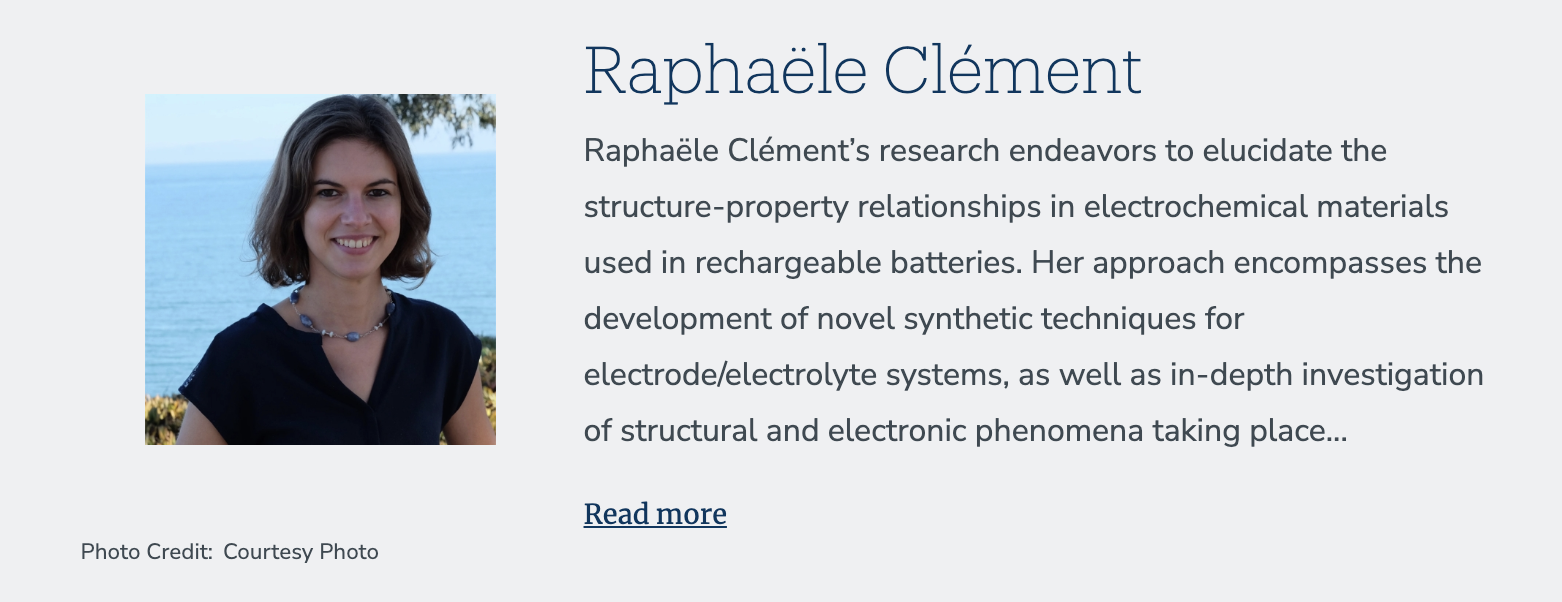Quantum Foundry Faculty Members will work with colleagues across the U.S. on a five-year, $125 million grant
A new aqueous battery research collaboration to advance clean energy

Excerpt from the UCSB Current
UC Santa Barbara materials faculty members Raphaële Clément and Ram Seshadri will work with colleagues across the U.S. in one of two U.S. Department of Energy (DOE) Energy Innovation Hub teams funded by a five-year, $125 million grant, “to seed and accelerate next-generation technologies beyond today’s generation of lithium (Li)-ion batteries,” the DOE stated.
The multi-institution teams, one led by Argonne National Laboratory in Illinois, and the other by Stanford University/SLAC, will develop scientific concepts and understanding with an eye to decarbonizing transportation and incorporating clean energy into the electricity grid.
Clément and Seshadri are part of the Aqueous Battery Consortium (ABC) led by Stanford University/SLAC and involving 31 co-principal investigators from 15 institutions in the United States and Canada. The ABC will focus on establishing the scientific foundation for large-scale development and deployment of aqueous batteries for long-duration grid storage technologies, prioritizing the use of Earth-abundant materials to mitigate supply-chain risks.
For the full article, please see the link below.

“We are excited to expand the portfolio of experimental tools that will be employed to help address the grand challenge of creating aqueous batteries suitable for grid-scale storage,” said Seshadri. “We are particularly interested in the use of operando tools that can diagnose materials properties during the process of charging and discharging, for example, by carrying out studies in a scanning electron microscope, making use of the superb shared facilities that are so central to how we work at UCSB.”
Among the multiple institutions participating in the two Energy Innovation Hubs are Historically Black Colleges and Universities and other Minority Serving Institutions. The projects provide an outstanding opportunity for workforce development in energy storage research and inclusive research involving diverse individuals from varied institutions.